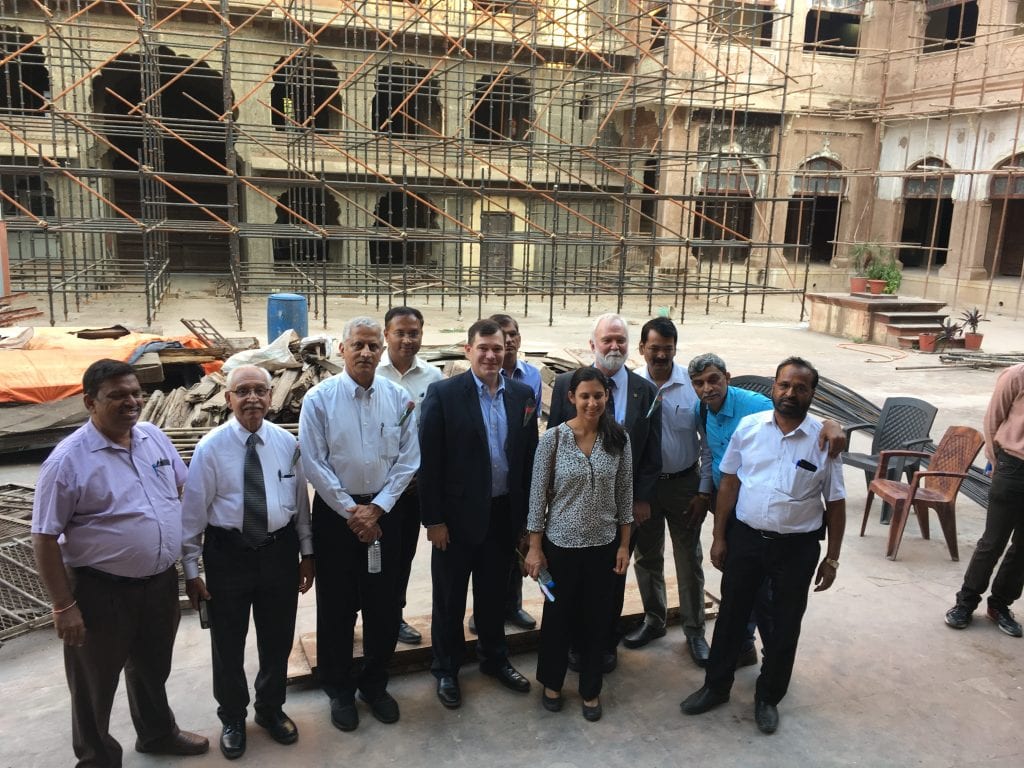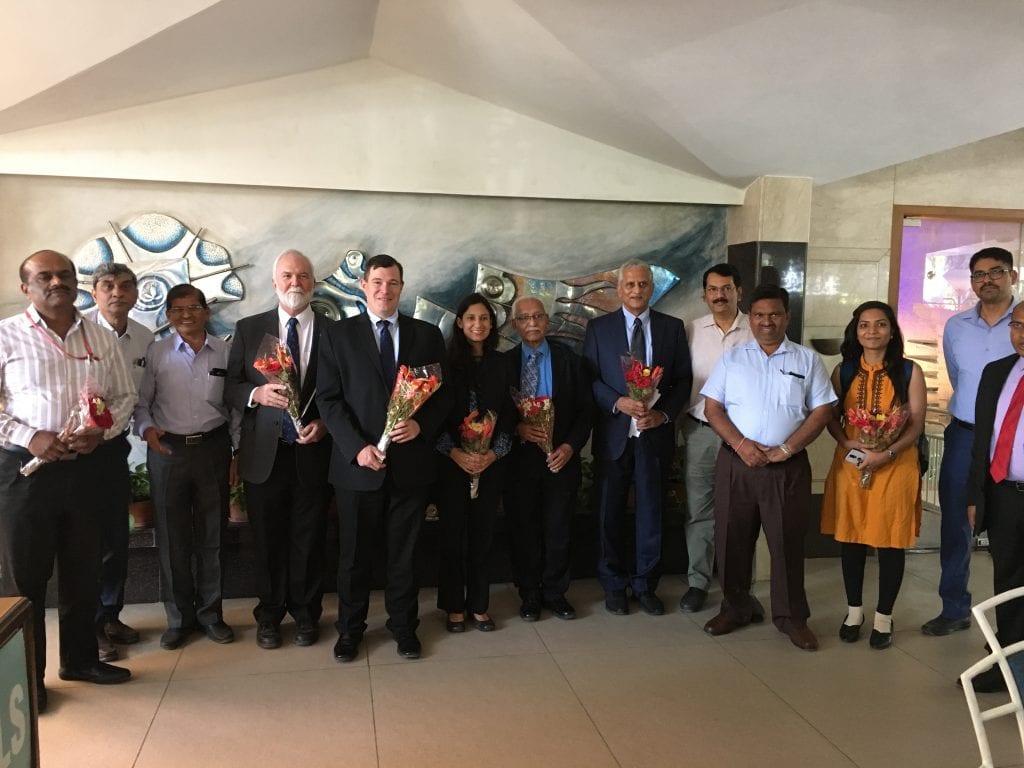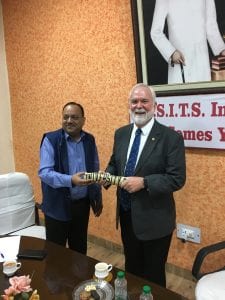India Center Visits Smart City Champions

A UCF delegation led by Michael Johnson, Ph.D., dean of the College of Sciences, and interim director of the India Center, recently completed an intense, 8-day visit to the Indian state of Madhya Pradesh. The delegation, which included individuals from the College of Sciences, College of Engineering, and the Office of Research, met with state and local officials, academic partners and members of civil society organizations in Indore, the state’s most populous city, and Bhopal, its capital. The delegation was hosted by the government of Madhya Pradesh, which entered into an agreement with UCF in July to cooperate on economic, research, cultural and educational issues.

Specifically, the delegation met with the leadership of Madhya Pradesh’s highly touted smart cities initiative. Meetings and site visits focused on sustainable development, and included in-depth discussions as to how UCF could help the state in a number of critical areas including renewable energy, transportation, tourism, environmental protection, ecology and cooperative research. Implementing smart city programs has been a priority for the Indian national government, and Madhya Pradesh, which has seen rapid economic development over the past two decades, has seven smart city projects underway. Among government officials, the UCF delegation met with the principal secretaries of Urban Development & Housing Vivek Aggarwal, who oversees and coordinates the state’s smart cities. The group also met with the principal or chief secretaries of Technical Education, Education, Tourism, and Renewable Energy, and Culture, and toured the Madhya Pradesh Smart City Control Centre.
“Madhya Pradesh’s development is impressive, particularly the smart city programs. We believe UCF and our partners in Central Florida not only can play a beneficial role in implementing the state’s smart cities plan, but can also learn from the work underway in India. It is really amazing to see what Madhya Pradesh is doing – a holistic, sustainable approach to development,” commented David Dumke, UCF director of South Asia Initiatives. Dumke also noted that implementing such a comprehensive infrastructure and development program requires both visionary leadership and considerable public support.
Additionally, the India Center team visited four universities: Shri Govindram Seksaria Institute of Technology and Science, India Institute of Technology (IIT) Indore, Maulana Azad National Institute of Technology, and Acropolis Institute of Technology & Research Indore. In each case, the UCF team identified areas of possible cooperation, and will look to build relationships that could include programs involving students, faculty, and research.
UCF has discussed developing a “Madhya Pradesh smart cities research cell” with government and university partners. Ideally, UCF can help measure progress, identify challenges, find solutions, compare best practices, and support ongoing and future work in a number of fields. The UCF team also identified opportunities working with the Madhya Pradesh culture and tourism offices. The state is an ecological jewel, with great potential in ecological tourism. It also has hundreds of historical sites, including many being renovated by the smart cities program. In the cultural realm, UCF hopes to host a series of Madhya Pradesh expert speakers in Orlando.
UCF is appreciative of Principal Secretary Vivek Aggarwal and Mr. C.U. Roy of Madhya Pradesh Smart Cities, for hosting the visit and their commitment to implementing the July agreement. Follow up visits by UCF faculty to Madhya Pradesh, and Indian officials to Orlando, are expected in 2019. The India Center at UCF also credits Dr. Kartikeya Singh of the CSIS Indian States program for helping build the partnership between UCF and Madhya Pradesh.
